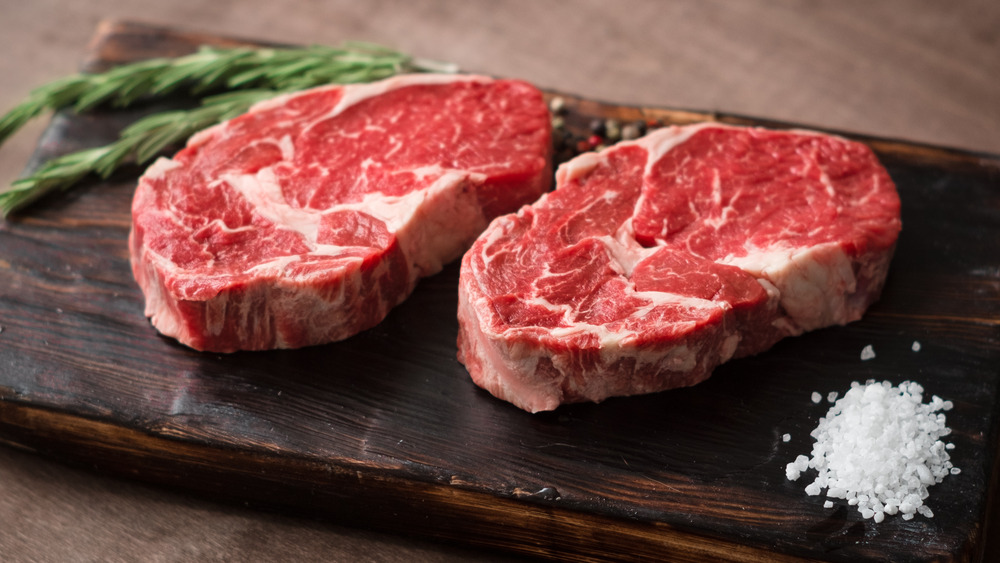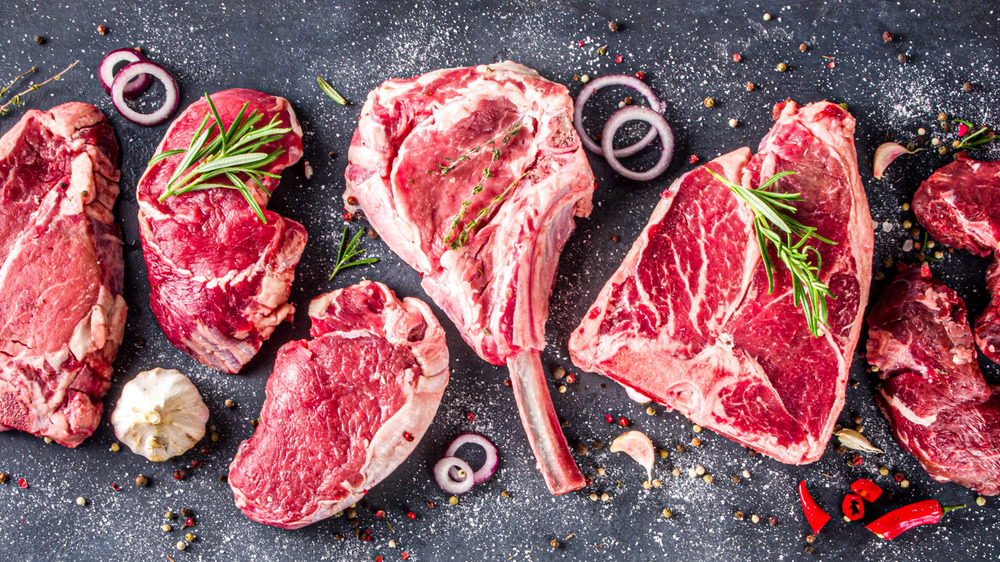The Real Reason Why Steak Is So Expensive
In 2012, the American food writer and historian Josh Ozersky deemed the steakhouse a holdover from a time when meat was cheaper and expectations were lower. Writing in Time, he compares the steakhouse to a strip club, as they "offer the most primal of pleasures, but the actual exchange is cynical, unsatisfying, and almost prohibitively expensive. And yet we keep going back."
To that assertion, people may nod, but also may wonder why steak prices have risen. Ozersky cites the rise in corn prices and in demand overseas. However, as he and Mel Magazine both note, the most desirable steaks are so expensive because they only consist of up to 10 percent of a cow's mass. So, farmers have to raise a whole cow for a piddling amount of meat, which steakhouses buy, and so have to charge more to make a profit.
Of course, one could buy cuts from other parts of the cow, as Bon Appeit suggests. Their recommendations, the boneless short rib, flank steak, bottom sirloin, and top round, are cheaper steaks because they come from the parts of the cow that see more muscular activity. In addition, then, to being rarer than other parts of the cow, fillet and sirloin command higher prices because they're simply more tender.
Steak prices are kept artificially low
Contrary to how many Americans may feel, the price they pay for steak is lower than what it could potentially be due to government subsidies and gaming regulations. In a comparison between the cost of cultured meat and slaughtered meat on Medium, writer Freeman Jiang suggests that while farm meat is currently cheaper, its price may hide costs subsidized by the government. The piece proceeds to note that the US government provides $25 billion to farmers and farmland owners, of which corn receives at least $2.8 billion. So, one can imagine that without the added payments, farmers would be forced to charge consumers a higher price for steak.
Another reason why meat may be artificially cheaper than alternatives is that the government doesn't enforce costs that the industry externalizes; that is to say, costs they offload onto the community like environmental degradation. "Animal meat gets to externalize a lot of its negatives — externalities like health care, ecological, worker welfare, animal welfare," food researcher Zak Weston explained to Vox. If meat companies had to pay for more of the cost of their production, prices again may go up.
So, really the expensive steak may seem like a deal. Whether it's good or bad depends on how much you value the meat.

